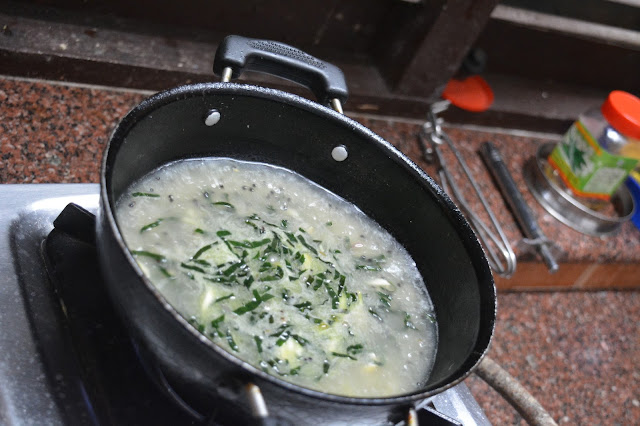Food decision making is a process that goes beyond the
simple question of what to eat and where to eat. I remember making rounds around the city
unable to decide the genre of food to eat and where to eat. Interestingly for
me the experience had been that, the more thoughtful a decision, the less satisfied
with the food experience.
As a society, food decision making has several dimensions
to it. This discussion is not limited to eating out but also extends to the
food that is cooked in family kitchens. It involves economics, gender,
gastronomy, sociology and lot more. It is interesting to look at the flow chart
of the decision making process that prioritizes dishes in the family/society
food hierarchy.
Kappa (Cassava) and Kanji (Rice Porridge-A parallel to
Congee in other Asian countries) are victims of this food class. Kappa and its
class issue have been dealt in detail in a separate post.
Except in small joints referred to as ‘mess houses’,
Kanji is not to be found in the menu cards of mainstream eateries. Contradicting
is the fact that Kanji connects nostalgically, at large to the population of
Kerala.
Thinking about this contradiction, the foundational
nature of Kanji needs to be looked at. Kanji is very basic in nature. ‘Easy to make,
cheap and filling’’. This contradicts the very essence of eatery business. So let’s
take it this way; being basic connects kanji to the fundamental self of people
and that’s why it’s nostalgic. At the same time, it being simple, cheap and filling
alienates it from the mainstream restaurant industry.
It is curative, as it’s soft on the tummy and its
energizing with its high starch content. That’s why many may associate it with
illness. Some may have had Kanji only when they were sick or when they were forced
to rest their digestive juices.
For many a lot, it associates with times of hardship and hard
work, when kanji and kanji vellam (Water strained out of rice porridge) gave
the energy to move on till the end of the day. For instance, farmers and farm workers
would go the field early in the day and come out of the field late in the
morning to have a serving of kanji, which would keep them going in the hot sun,
till late afternoon.
Kanji stands witness to the early day’s food management philosophy
of Kerala families. The rice that is left over in the night did not go into refrigerators
those days (In fact, refrigerators were not common then). Instead, the lady
of the house would pour water into rice and then the next day this turns into
Pazhankanji (Translated as Old Kanji-a delicacy within itself).
The act of pouring water into rice represents the closure
of kitchen for that day. This often connects deep with the feelings of a mother
or a wife, often anguished about a husband or a son not turning up for supper. As a routine she used to be the one who ate
last after everybody was served. Pouring water to the extra rice will keep it
from going stale. However, for her it means much beyond it. It is her act of protest, the loudest she
could. And then the next day, she ‘drinks
the protest’ and moves on to cook fresh for the rest of the family. (The chance
of food being extra without one or more members opting out of dinner was rare, as
rice used to be a precious commodity and the home makers were experts in its management).
Thalikkal-An innovation
We recently came across a very creative version
of Kanjivellam. A very tasty curry called
‘’Thalikkal’’ which is basically Kanjivellam seasoned with mustard, coconut oil
and Amaranthus leaves.
A colleague of mine suggested an improvisation on this
dish, by adding shredded raw pappadam as it is cooking. This would give more
texture and consistency to the gravy.
Though very tasty, it will be very difficult for ‘’Thalikkal’’
to strive upward in the food hierarchy ladder to be a ‘’presentable’’ dish.
Thank you Dea and Prof. Ashley Paul for your inputs





Thank You Sreevalsan for that lovely photograph
ReplyDeletemone.. nirmalaaa.. kollaam.. I liked the politics of kanji especially
ReplyDelete